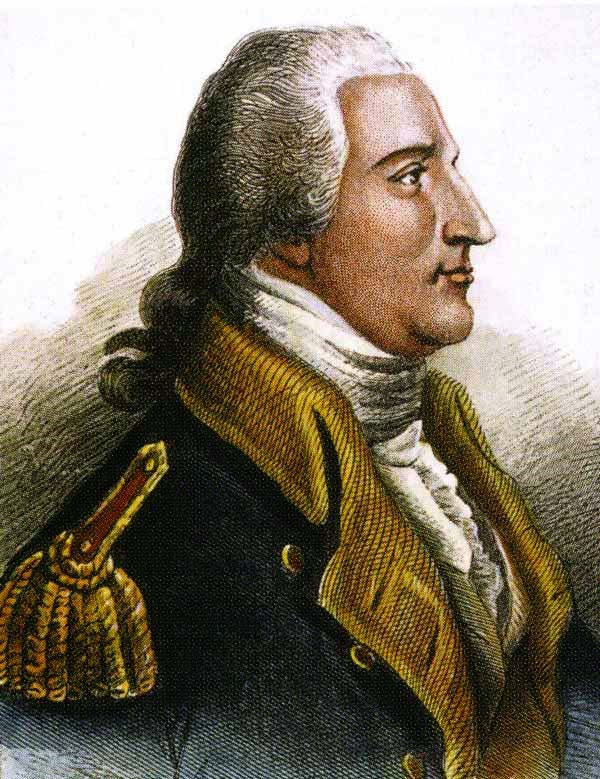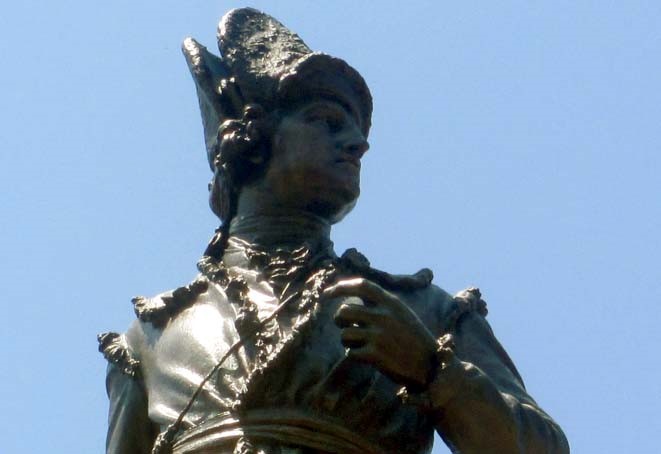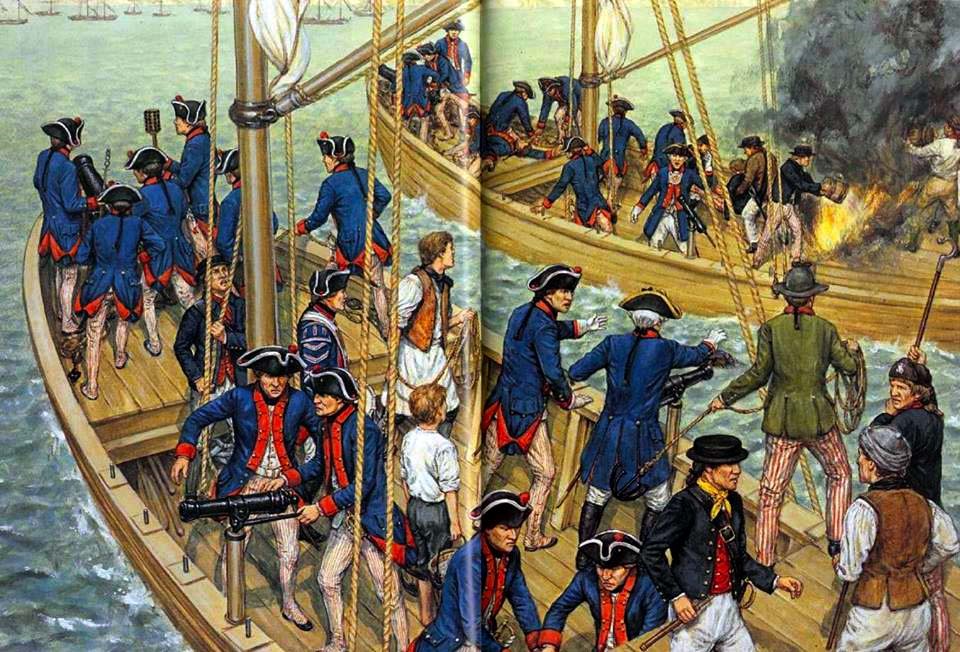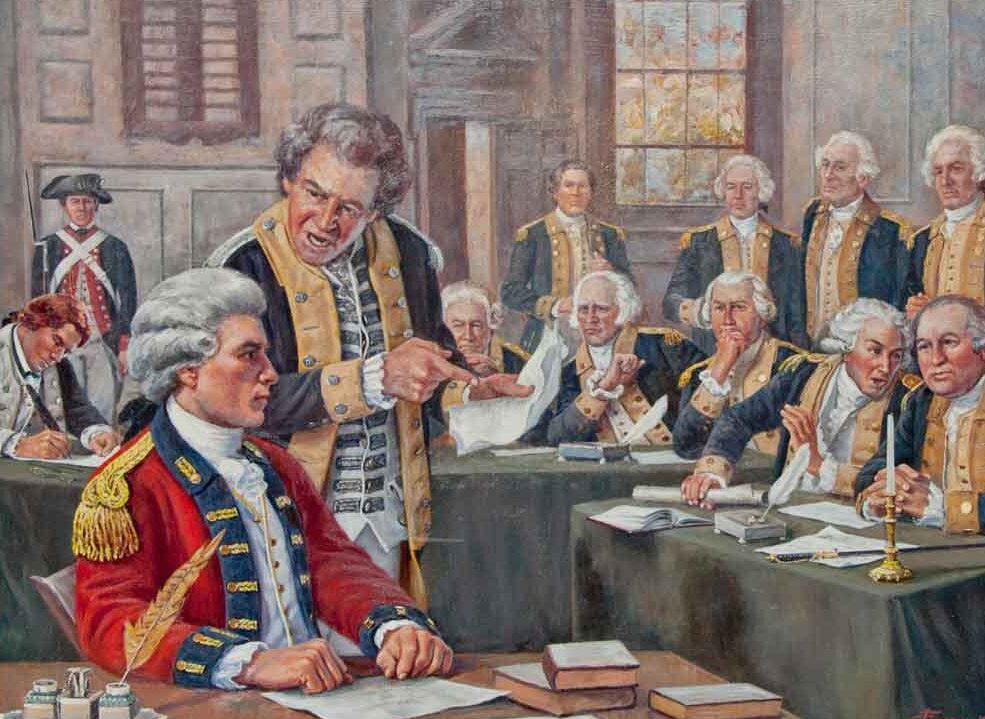Two hundred thirty-five years ago an event took place which, had it succeeded, would have ended the American fight for independence. Before exploring that near disaster, see if you can answer these questions about the American Revolutionary War, all of which have some bearing on the event.

Who was called “The Hannibal of North America?”
Who built a fleet on Lake Champlain and fought British ships invading New York from Canada?
Who led a small American army more than 300 miles through the Maine wilderness in fierce winter conditions in an attempt to capture Quebec?
Whose heroic action at the Battle of Saratoga led to the greatest American victory of the war?
Who did George Washington consider to be his best fighting general?
Who attempted to betray West Point to the British in exchange for 20,000 British Royal Pounds?

A True Hero of the First Days of the War Benedict Arnold
The answer to all these questions is Benedict Arnold, the most notorious traitor in American history. Entrusted with the defense of West Point by George Washington during the Revolutionary War, he attempted to surrender it to the British. The conspiracy, had it succeeded, would probably have sounded the death knell for the American cause. Fortunately, his treachery was discovered at the last moment. Warned of the plot’s failure, Benedict Arnold just barely evaded capture and escaped to British lines.

What prompted this man, a true hero of the war’s early days, to suddenly turn on his country? Perhaps the only way to understand this turnabout is to recognize that there were two Benedict Arnolds, the Patriot, and the Traitor. The Patriot accomplished repeated feats of military brilliance, exhibited uncommon valor on the battlefield, provided outstanding military leadership, and earned the respect, and even love, of his men. The Traitor was a man turned inward, mulling unhappily over perceived slights and injustices, fretting that others less qualified were given preference over him, and easily provoked if his “honor” was challenged. But it probably was his desperate need for both money and power that finally turned him to treason, for as the war dragged on, Congress became less able to provide either. The Traitor did not want to be caught on the losing side.

Benedict Arnold’s First Action was the Capture of Fort Ticonderoga
Benedict Arnold’s first action in the Revolutionary War was the capture of Fort Ticonderoga in a joint action with Ethan Allen and his “Green Mountain Boys” in May 1775. His success persuaded George Washington to commission him a colonel in the Continental Army, and give him command of one wing of a two-pronged attack on Canada, designed to seize Quebec and Montreal from the British, and hopefully bring Canada into the war on the American side. Arnold had by far the more difficult mission, a march of more than 300 miles up the Kennebec River, ending with an assault on Quebec. Despite the difficulties of moving men and supplies through an untamed wilderness in almost winter conditions, the newly commissioned colonel jumped at the chance. Even after losing almost half his force to exposure, disease, and desertion, Arnold succeeded in linking up with Brigadier General Richard Montgomery, the leader of the second wing. Together, they launched an attack on Quebec, which failed, when early in the action Montgomery was killed and Arnold seriously wounded.

What followed was a long retreat from Canada, involving a delaying action against British forces intent on seizing Albany, New York, before winter made military operations in the area impossible. To slow the British advance, Arnold constructed a small flotilla of lightly armed galleys and gunboats on Lake Champlain in order to harass and slow a much larger British fleet, embarked to capture Fort Ticonderoga, and the gateway to the Hudson Valley. In spite of being heavily outnumbered, Arnold engaged the enemy without hesitation. Although his small force of vessels was eventually destroyed, he succeeded in delaying the British long enough to force them to turn back to Canada to avoid the onset of winter.
Although he continued to distinguish himself in several military actions, Benedict Arnold’s greatest service to the revolutionary cause was the part he played in the battle of Saratoga, which became the turning point of the war. Leading from the front, as he always did, Arnold urged his division forward in attack after attack against heavy enemy fortifications, until he fell wounded, once again in the same leg as at Quebec. He was out of the battle, but the battle had been won. Later, the British commander, General John Burgoyne, gave Arnold credit for the outcome, praising his “bravery and military abilities.”

Arnold was now at the height of his fame, yet eight short months later he made his approach to the British. What prompted him to do so? While we will probably never know for sure, we can draw inferences from two major events that affected him deeply. In February 1777, Congress announced the promotion of five new major generals. Arnold’s name was not among them. To make matters worse for a man of his sensitivities, all five men on the list had been brigadier generals a shorter time than he had, and none equaled his military achievements. Although at the urging of Washington, he was eventually promoted and his date of rank adjusted, it took months of haggling in Congress to accomplish, convincing Arnold that certain members of that body would always view him with disfavor.

Washington Appointed Benedict Arnold as Military Commander of Philadelphia
After Saratoga, Arnold’s wounded leg was slow to heal. He limped noticeably, could not mount a horse, and was generally unfit for military campaigning. Partly for this reason, Washington appointed him as military commander of Philadelphia, giving his leg time to mend. His high living and questionable financial dealings while in this position soon aroused the attention, and later the ire of Joseph Reed, President of the Executive Council of Pennsylvania. In February 1779, Reed published eight charges against Arnold, and in March a Congressional committee recommended court-martial on two of them.

In May, without waiting for the court to convene, Benedict Arnold offered his services to the British.
Benedict Arnold’s Treachery was discovered
Over the many years since that fateful day in September 1780 when his treachery was discovered, there has been no mercy for Benedict Arnold in either the hearts or in the minds of his countrymen. He has been vilified by the press, in books, and in the halls of learning from grade school to university. His very name has become synonymous with treason. But perhaps it is finally time to take a more moderate view, to recognize that there were two Benedict Arnolds. In judging him, we should rightly condemn The Traitor, but can we not also remember The Patriot?
Read About Other Military Myths and Legends
If you enjoyed learning about Benedict Arnold, we invite you to read about other military myths and legends on our blog. You will also find military book reviews, veterans’ service reflections, famous military units and more on the TogetherWeServed.com blog. If you are a veteran, find your military buddies, view historic boot camp photos, build a printable military service plaque, and more on TogetherWeServed.com today.

0 Comments